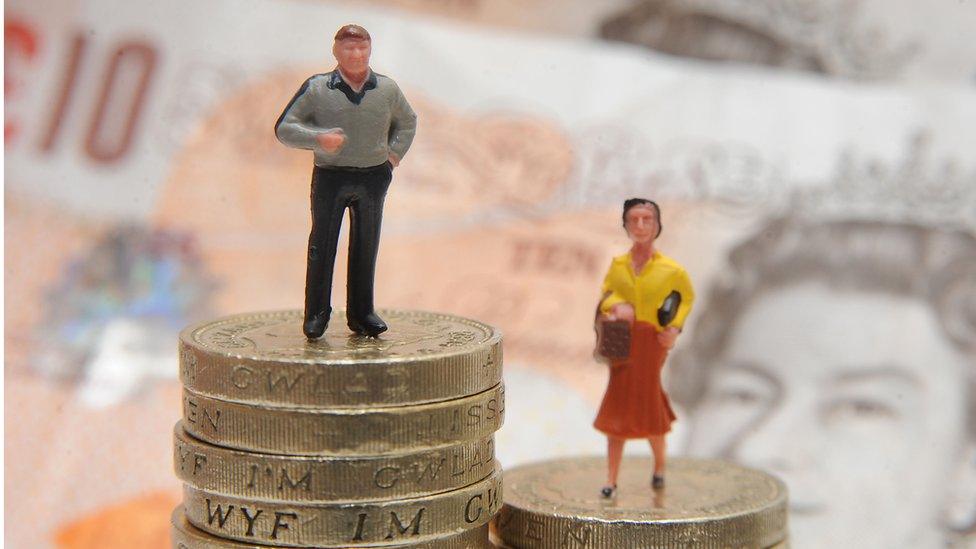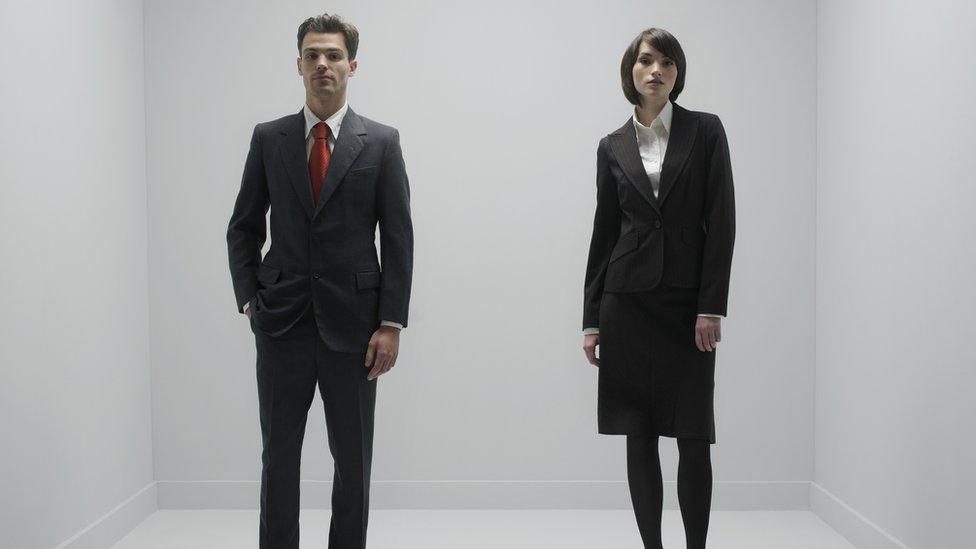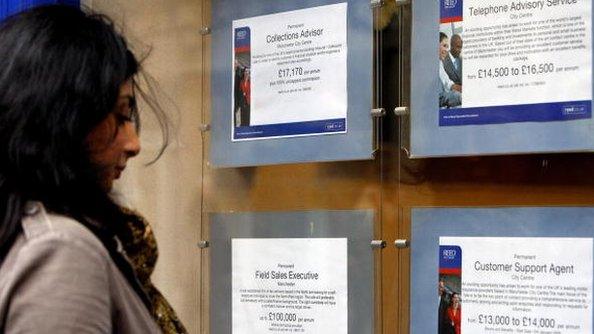Gender pay gap in 'reverse' for some ethnic groups
- Published

Working women in some ethnic groups in the UK have not only narrowed the gender pay gap but have overtaken men's earning power, analysis suggests.
The Fawcett Society, which campaigns for equality, said Caribbean and white Irish working women, on average, earn more than men from the same background.
Its report found, external that, for most ethnic groups, men earned more than women.
It used hourly pay data from the Office for National Statistics (ONS) covering full-time employees in the UK.
The gender pay gap, or the average difference in hourly pay between men and women, currently stands at 13.9% for full-time workers, according to the ONS.
The society found the biggest pay gap between white British men and women, where male full-time workers were paid £15.35 an hour on average and women £13.21, between 2010 and 2015.
'Workplace discrimination'
Caribbean women, by contrast, earned £14.51 on average, compared with £13.34 for their male counterparts.
White Irish women also had higher earning power - £18.04 per hour, compared with £17.39 for men, the Fawcett Society found.
The report is based on analysis of ONS Labour Force Survey figures from 2010 to 2015, which collects information from 100,000 people every three months.
The research excluded Arab people because of the sample size being too small, but included other groups such as Indian and Chinese people working at least 30 hours a week.
The smallest sample was for Chinese workers, at 534, and the largest sample was available for white British workers - 106,123 people.
The "reverse" pay gap for black Caribbean people could be explained by mothers in this group returning to work while their children are very young, explained Anthony Breach, one of the report's authors.
But he said that black Caribbean men and women were more likely to experience discrimination in the workplace.
"They have more difficulties in the labour market as a whole and we know men's unemployment rate is higher," he said.
Meanwhile, pay for white Irish women in the UK has outpaced counterpart male salaries since the 2000s, the report said.

Mr Breach said white Irish women were more likely to do full-time work than white British women, and have a low unemployment rate compared with the rest of the population.
Sam Smethers, the Fawcett Society's chief executive, added that the gender pay gap was a "complex picture" in which many women were still left behind.
"This is a story of low labour market participation and low pay when they are in work - together with high levels of unpaid caring work," she said.
- Published24 September 2016

- Published20 April 2016

- Published21 February 2017
